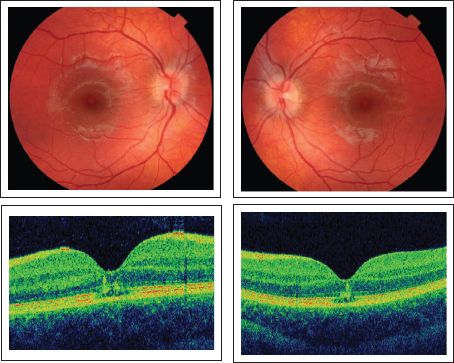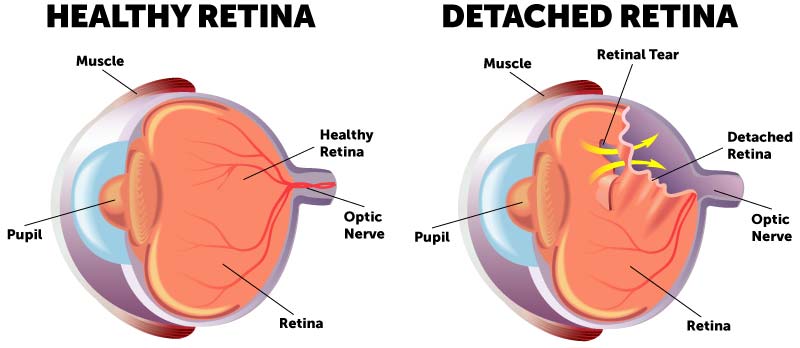
When you suddenly start seeing dark spots, flashes of light, spots or floaters (little specks or threads) in your peripheral vision, then you are probably experiencing the early warning signs of a failing detached retina. Your peripheral vision may become blurred, or you may have impaired vision due to glaucoma.
It's not always easy to tell when a retinal detachment is imminent, but the symptoms you may experience could be telling
Some of the symptoms include; double vision, blurry vision, a loss of peripheral vision and a decreased sense of smell. If you already have glaucoma, then your symptoms will worsen and your vision may become more blurry as well.
Once you discover the possible causes of your detached retina, it's time to act now and avoid further complications. Retinal detachment can be the result of a large amount of damage to the retina and when it's too late, the damaged eye will have to be removed. Depending on the extent of the damage to the retina, the vision loss may have to be treated with prescription eyeglasses or laser surgery.
One of the possible reasons for detachment is glaucoma. While this condition can sometimes be controlled with surgery, glaucoma has a tendency to progress until it becomes a permanent disease. Glaucoma typically develops when the pressure in the eye drops to high levels.
If you suffer from glaucoma, your detached retina may require immediate surgery in order to stop the progression of the condition and prevent the need for additional treatments. The extent of glaucoma may determine how aggressive the surgery will be.
You may also develop detached retina if you have an eye infection or some other serious eye disorders. If your detached retina is caused by an infection, it may require removal immediately. Make sure to take action if you have any of the following conditions: cataract, macular degeneration, cataracts, conjunctivitis, presbyopia and glaucoma.
The retina, the colored part of the eye is actually the window to the eye. When it's damaged, the eye won't be able to see light clearly and will cause blurry vision to occur. The most common eye disorder causing detached retina is glaucoma. If you have glaucoma, then vision problems may include blurred vision, double vision and decreased sense of smell.

Vision problems may result from eye problems that occur when the eyes are not properly cared for, such as: corneal scarring and dryness.
As the vision worsens, your vision may become blurry as well, and you'll find yourself squinting in order to see
Once your detached retina develops, you will be constantly looking for your glasses or contact lenses. When the eyes are glowing, it can be very difficult to read, especially at night. Many people are forced to wear contact lenses during the day because they often look bad while wearing them. Contact lenses are generally not recommended for pregnant women.
One of the many vision problems that develops from retinal detachment is night vision problems. Many people have this problem due to their own carelessness when they sleep at night. If you are constantly awake in bright light, you will find that you cannot see anything at all. Thus, you need to constantly avoid bright light to prevent the development of detachment in the eye.
If you wear contact lenses, it is important keep your eyes clean. It is recommended that you keep your lenses clean as often as possible to remove any dirt from them. Regular cleaning ensures that the lens does not dry out.
Make sure to have a regular eye exam in order to keep your eyes healthy and alert. If you notice any problems with your eyes, you need to visit your eye doctor as soon as possible.
Once your vision problems become worse, your doctor may recommend you to consult with an ophthalmologist. You should also consider consulting with a specialist in your field, such as an optometrist, who may be able to help you deal with your vision issues. Even if the eye injury has been corrected, the eye may need some additional attention in order to correct the detached retina and prevent further damage to the eye.